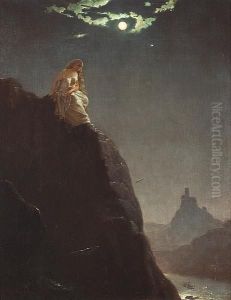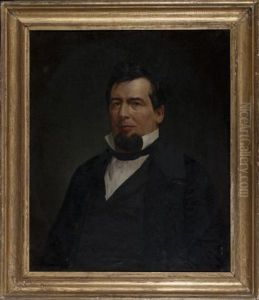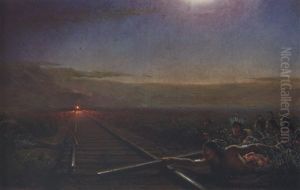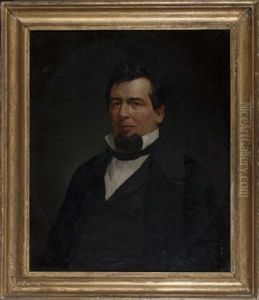Theodore Kaufmann Paintings
Theodore Kaufmann was a 19th-century painter of German origin, known for his works that often tackled social issues and historical events, particularly those related to the American Civil War. Born in Uelzen, Germany, in 1814, Kaufmann embarked on his artistic journey in Europe, where he received his initial training. He spent some time in Hamburg before migrating to the United States around the mid-19th century.
After settling in America, Kaufmann became deeply engaged with the country's culture and politics. His experiences and observations during the Civil War became a central theme in many of his works. He was not merely a bystander; Kaufmann served in the Union Army, and his firsthand experience of the conflict gave his paintings a touch of authenticity and emotional depth. His most noted works from this period include 'On to Liberty' (1867), which depicts African American slaves escaping to freedom, and 'Give Us This Day Our Daily Bread', which sensitively portrays the plight of war widows.
Kaufmann's paintings are characterized by their narrative quality and their attention to detail. He often portrayed scenes of high drama and emotion, aiming to evoke a strong response from the viewer. Although not as well-known as some of his contemporaries, his work provides valuable insights into the social attitudes and historical events of his adopted country during a turbulent period.
His artwork was also exhibited in venues such as the National Academy of Design, reflecting his integration into the American art scene. Theodore Kaufmann passed away in 1896, leaving behind a body of work that continues to be studied and appreciated for its historical significance and artistic merit.



